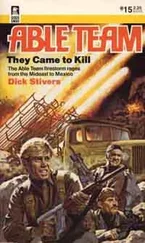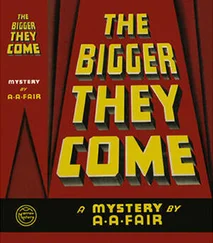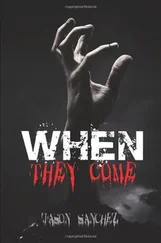A shrug. “Least I can do.”
“What about your wife, she okay with it?” The wife, short, plain, with an expressionless face, a straw hat and an oversized turquoise necklace one of the goatees had jerked from her throat and dropped casually on the pile in the middle of the blanket, had gone back to the ship with the rest of them.
Another shrug, more elaborate this time. A smile. “Once a paramedic, always a paramedic.”
“The guy’s dead, isn’t he?”
“Yeah, he’s dead. You could see that when you let go of him. But we have to try — and I tell you, I’ve seen people come back to life so many times I wouldn’t want to be taking odds. You do what you can and the rest is out of our hands, you know what I mean?” The loudspeaker crackled again, more Spanish. Oscar looked up, concentrating, then shook his head. “No, it’s nothing, it’s not for us.”
“But again, thanks for this. I owe you. When we get back to the ship, the drinks are on me.”
“No apologies. What you did out there was amazing, it really was. Word is”—he lowered his voice—“there’s been problems lately, the kind of thing the Costa Rican government, not to mention the cruise line, doesn’t want to get out. It’s not just robbery. Sometimes — again, I’ve heard rumors — they want more than that.” He shot a glance round the room, then leaned in confidentially. “They can get brutal. With the women especially. In one case I know of they raped them all, young, old, they don’t care, right in front of the men. Daughters even. Kids.”
“Jesus.”
“So what I’m saying is you don’t have to thank me, I should be thanking you.”
There was movement at the door. Sten glanced up, expecting the police, but it was only another patient, a boy of ten or so, his head wrapped in gauze and the right side of his face looking as if somebody had taken a cheese grater to it. The woman with him — his mother, his aunt, maybe a big sister — looked like a saleslady from one of the high-end stores, pink dress, heels, eye shadow, but the face she wore was the face of despair.
Distracted, he watched the woman guide the boy across the floor to the admittance desk and begin making her case to the secretary there, who barely glanced up from her computer screen. The boy was unsteady on his legs, leaning into the woman for support, and Sten could see where her dress had begun to go dark under the arm and across her breast with what might have been perspiration but wasn’t. He couldn’t understand what she was saying, but her voice rose up suddenly to jackhammer the secretary, who kept pointing to the seats in the waiting room with an increasingly emphatic jab. The woman in pink was having none of it. Her voice raged on until there was no other sound in the room. The lights flickered. The air conditioner blew. And then, as if it had all been decided beforehand, a nurse emerged to escort her and the boy into the inner sanctum and the little sounds came creeping back, people coughing, sneezing, conversing in low voices against the pain that had summoned them there. Sten could feel his blood racing. “High drama, huh?” he said.
Oscar, who’d been watching the boy too, turned back to him. “Bicycle,” he said. “Or motorbike. Bet anything.” His eyes flicked to the doorway behind the desk and back again. “And a concussion on top of it.”
Sten shifted in the chair, which had begun to dig into his backside. He wanted to stand and stretch, but instead he just sat there, bearing it. People crowded the room, faces everywhere. Somewhere a machine was whirring. Babies cried. Somebody’s phone rang. “So what now?” he said, shifting again. “I mean, what are the police going to do — I’m not in trouble, am I?”
“You? They ought to give you a medal.”
“Right, sure. But do you know anything about the laws down here?”
The thin stripe of mustache quivered and it took him a moment to realize Oscar was working up a grin, as if all this was funny, as if now, sitting here exiled in this little chamber of horrors, the real fun was about to begin. “They ought to give you a medal,” he repeated.
An hour crept by. Nothing happened. More people came dragging through the double doors and they brought more squalling babies with them, more bandages, more broken bones and abrasions, more grief, but the police never showed. Oscar, depleted of small talk, leaned back in his chair and shut his eyes. Carolee kept saying, “This is ridiculous,” and Sten kept agreeing with her. Beyond the windows, the sun stood high still, though it was past five now, cocktail hour, and he couldn’t help thinking about what they were missing aboard ship, the outward-spooling loop of activities that lassoed every moment, as if to sit on deck and look out to sea would crush you with boredom. He didn’t need activities. He needed rest. He needed a drink to wash the bad taste out of his mouth. The Martini Bar was all ice, the bartop itself, frozen and planed smooth, and the air-conditioning was like the breath of a deep cave in the hills back home in Mendocino.
At some point, he must have closed his eyes too. He’d been thinking about the first time he and Carolee had come south of the border, a summer vacation when they were in their twenties, backpacking through Mexico, Belize and Guatemala. Carolee had stepped on a sea urchin in one of the tidal pools and the spine had broken off in her heel, which became instantly infected, and so they’d had to go to a clinic like this one, or was it a hospital? That was in Mexico, in the Yucatán. They’d waited then too, waited eternally, until finally a doctor no older than they took them into a back room strewn with medical debris, gave her a local, extracted the spine and shot her up with penicillin. Sten had had to carry her out of there. And then, two days later, he was the one who collapsed, sick with a gastrointestinal bug because he’d ordered oysters— ostiones —and didn’t know the term the waiter threw back at him: ceviche . He’d expected them fried or maybe baked in an Oysters Rockefeller kind of thing, but here they were, served up cold on a plate of ice, and Carolee sitting across the table grinning at him. “They look good,” she said, folding a chicken taco into her mouth. And he, whether out of some macho impulse or maybe just the stupidity of youth, sucked them out of their shells, all twelve of them, and then ordered a dozen more.
It got worse. They were snorkeling someplace — Belize, he thought it was, or maybe Isla Mujeres — and stayed out too long because it was magical, beyond compare, the reef there alive with every kind of fish you could imagine, and it wasn’t just sunburn they suffered all the way down the blistered crab-red lengths of their bodies, from the backs of their necks to the calluses at their heels, but sun poisoning . Within hours their legs swelled up with fluid, as if they’d somehow shot over to Africa and contracted elephantiasis. They could barely walk, and she with her sore foot to begin with. Clutching at each other for support, sweltering, sick, staggering like drunks, they made their way up the street to their hotel, local rum — fifteen cents a shot at the lobby bar — their only consolation. And then, a few days later, they began to peel, and as he crouched there over the unmade bed, absently stripping the dead skin from his legs while Carolee snored beside him, he noticed the ants coming in beneath the door in a wavering dark line that snaked under the bed to climb the wall and exit through a crack below the windowpane. They seemed to be carrying something, these ants, like the leaf-cutters you saw in nature films. But they weren’t carrying leaves — they were hoisting pale shriveled translucent flakes of skin, human skin.
“Give me the Nordic climes,” he’d told Carolee when she sputtered awake, and told her again and again, through all these years, making a routine of it, a joke, but a joke that wasn’t funny, not in the least. “Oslo,” he’d say, “Helsinki, Malmö, Reykjavik, what’s wrong with Reykjavik?”
Читать дальше












